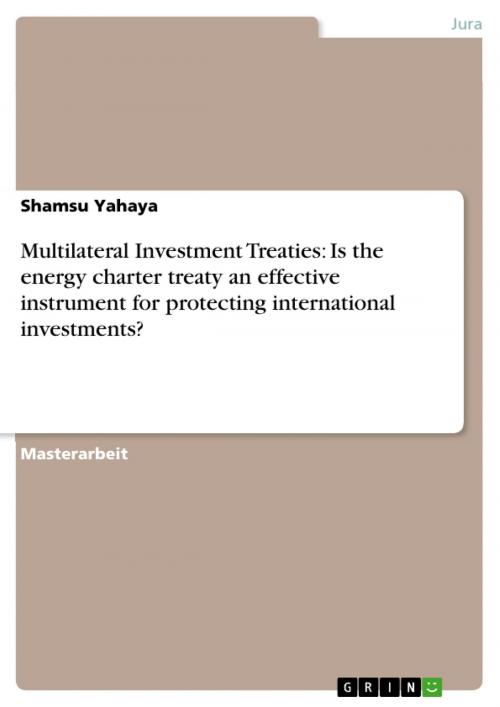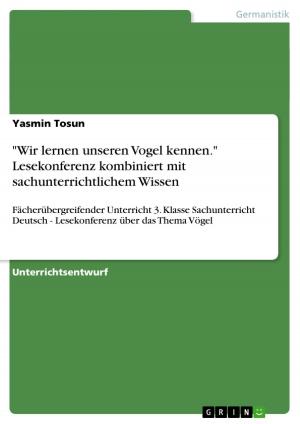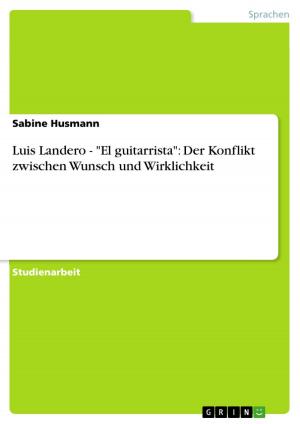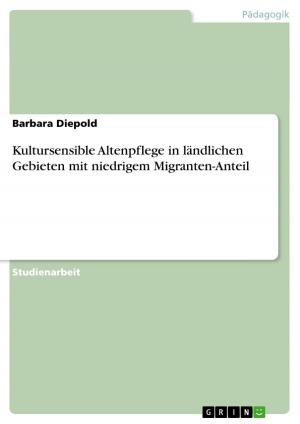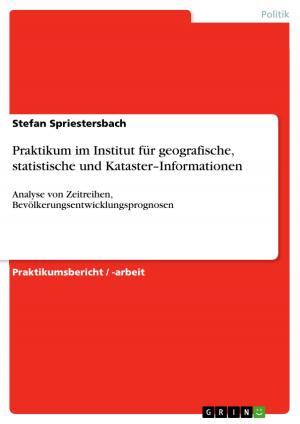Multilateral Investment Treaties: Is the energy charter treaty an effective instrument for protecting international investments?
Nonfiction, Reference & Language, Law, Business| Author: | Shamsu Yahaya | ISBN: | 9783640519125 |
| Publisher: | GRIN Verlag | Publication: | January 28, 2010 |
| Imprint: | GRIN Verlag | Language: | German |
| Author: | Shamsu Yahaya |
| ISBN: | 9783640519125 |
| Publisher: | GRIN Verlag |
| Publication: | January 28, 2010 |
| Imprint: | GRIN Verlag |
| Language: | German |
Masterarbeit aus dem Jahr 2009 im Fachbereich Jura - Zivilrecht / Handelsrecht, Gesellschaftsrecht, Kartellrecht, Wirtschaftsrecht, University of Abertay Dundee (Centre for energy, petroleum and mineral law and policy), Sprache: Deutsch, Abstract: The end of the cold war signalled an emerging need for economic integration between Western European countries and those countries which comprised the former Soviet Union. The energy sector was considered a perfect starting point for pursuing such cooperation mainly due to the fact that Eastern European countries were considered rich in oil and gas reserves. For this purpose, the Energy Charter Treaty as well as the Energy Charter Protocol were signed in December 1994 and came into effect on 16th April, 1998. The aim of the Treaty was to establish a comprehensive legal framework for promoting long-term cooperation between signatory countries in the energy sector. Indeed, the treaty is considered a powerful tool for investors as it grants direct right to initiate arbitration proceedings against host governments where there are alleged breaches of investment obligations. The purpose of this dissertation is to take a critical look at the effectiveness or otherwise of the treaty as regards the protection of international investments in the energy sector. A historical background leading up to the signing of the charter will be rendered. Also, the provisions of the treaty regarding investment protection and arbitration taking certain case studies of causes of action brought under the treaty will be discussed. Furthermore, a critical look at the shortcomings of the treaty will be attempted. The research findings will show that several successful cases have been concluded under the treaty; but criticisms and limits to the effectiveness of the treaty will be highlighted.
Masterarbeit aus dem Jahr 2009 im Fachbereich Jura - Zivilrecht / Handelsrecht, Gesellschaftsrecht, Kartellrecht, Wirtschaftsrecht, University of Abertay Dundee (Centre for energy, petroleum and mineral law and policy), Sprache: Deutsch, Abstract: The end of the cold war signalled an emerging need for economic integration between Western European countries and those countries which comprised the former Soviet Union. The energy sector was considered a perfect starting point for pursuing such cooperation mainly due to the fact that Eastern European countries were considered rich in oil and gas reserves. For this purpose, the Energy Charter Treaty as well as the Energy Charter Protocol were signed in December 1994 and came into effect on 16th April, 1998. The aim of the Treaty was to establish a comprehensive legal framework for promoting long-term cooperation between signatory countries in the energy sector. Indeed, the treaty is considered a powerful tool for investors as it grants direct right to initiate arbitration proceedings against host governments where there are alleged breaches of investment obligations. The purpose of this dissertation is to take a critical look at the effectiveness or otherwise of the treaty as regards the protection of international investments in the energy sector. A historical background leading up to the signing of the charter will be rendered. Also, the provisions of the treaty regarding investment protection and arbitration taking certain case studies of causes of action brought under the treaty will be discussed. Furthermore, a critical look at the shortcomings of the treaty will be attempted. The research findings will show that several successful cases have been concluded under the treaty; but criticisms and limits to the effectiveness of the treaty will be highlighted.
